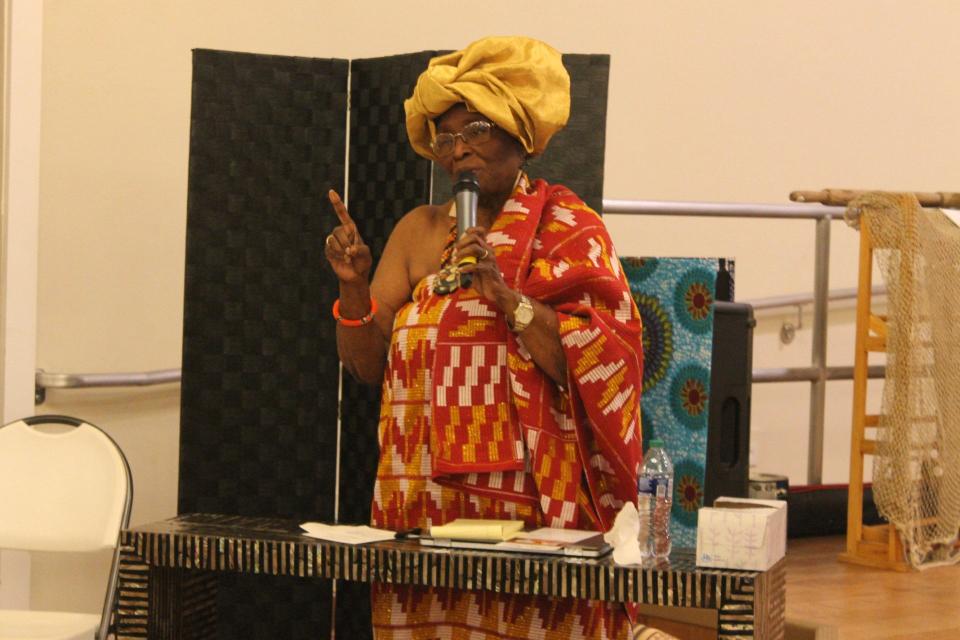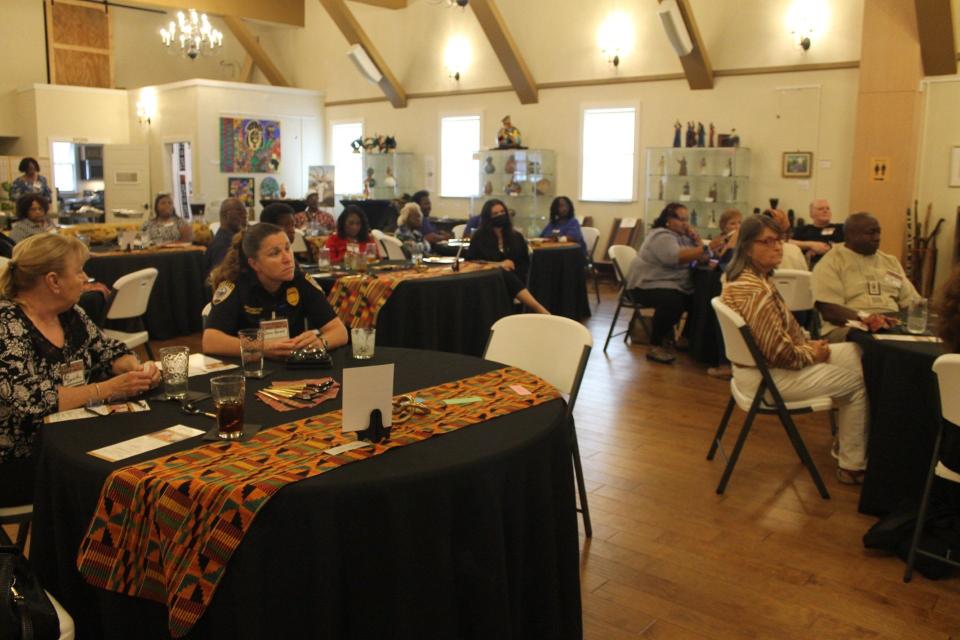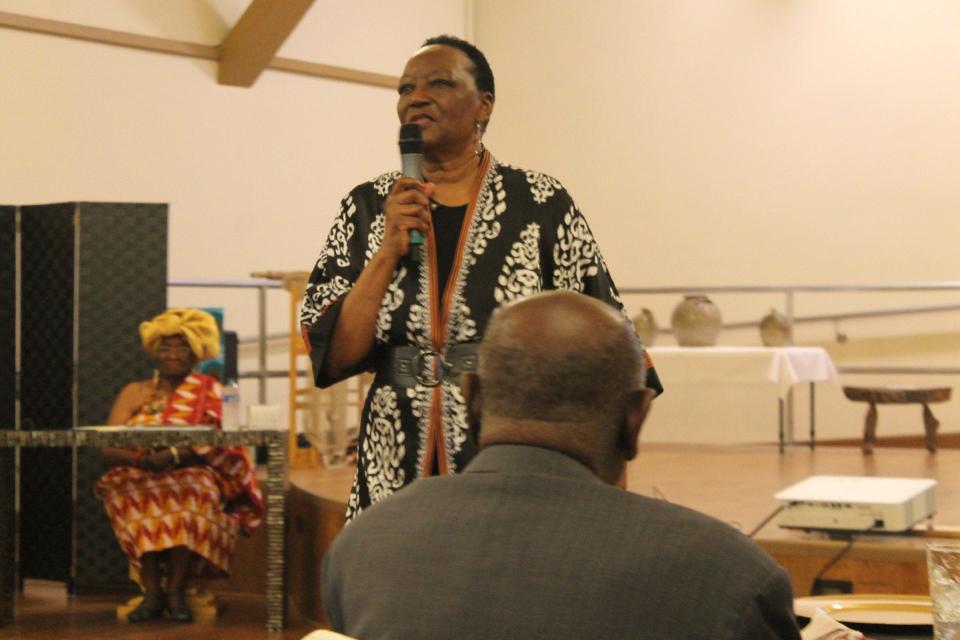Cotton Club Museum & Cultural Center's inaugural "Break Every Chain Master Class" in G'ville
A dialogue between residents, professors and community leaders sparked ideas about breaking the stigma of seeking help for mental health and developing ways to create equitable communities.
Class held to create healthy communities
The dialogue occurred during the “Break Every Chain Master Class” held Tuesday afternoon at the Cotton Club Museum and Cultural Center at 837 SE Seventh Ave.
Moderated by Madie (pronounced MAY-Dee) Mosley, Ph.D., owner of 3 Dimensions Life Management LLC., a retired educator and the ninth first lady of Florida A&M University in Tallahassee, the class was held to discuss ways to create a healthy community. It was organized by the Cotton Club Museum & Cultural Center and Florida African American Heritage Preservation Network.
“I’ve been wanting to do something for the Black community for a number of years,” said Mosely, who lives in Gainesville and served as FAMU’s first lady from 2002-2004 while married to then FAMU President Fred Gainous, Ph.D.
Enstoolment impetus for class being held
“When she (Vivian Filer) was enstooled, I saw it as a perfect time to reach out," Mosley said. "I wanted her influence to reach beyond Gainesville.”
Filer, a southeast Gainesville native and longtime resident, retired health professional and educator and community activist/historian, was enstooled in June during a celebration of her 85th birthday. An enstoolment is an African and African Diaspora tradition of bestowing the title of Queen Mother upon esteemed women as a recognition of past, present and future service to the community.
Filer was given a royal stool and designation with the honorary title of Queen Mother Mangye Naa Amiami Osuowaa Okropong I.
The class Tuesday included a discussion about ways to create a healthy community and Zoom presentations by two professors.
Experts make presentations via Zoom
Fran T. Close, Ph.D., a professor of behavioral science and health education at FAMU, gave a presentation titled “Mental Health Crisis in the Black Community,” and talked about the repercussions of untreated mental illness in the Black community.
Tuesday was World Mental Health Day and October is National Depression and Mental Health Screening Month, she said.
Dealing with mental health stigma in Black community
“The stigma discourages us from getting treatment we need,” Close said. “You’re not weak for dealing with mental health. That’s what it’s all about — letting them know what resources are out there so they know they are not alone.”
People can contact the Crisis Text Line 24/7 by texting HOME to 741741 and can contact the Suicide and Crisis Lifeline at 988, Close said.
16% of Blacks in U.S. report having a mental illness in past year
According to Close, 13.4% of the U.S. population identify as Black or African American, of which 16% reported having a mental illness in the past year.
Factors affecting quality-of-life-outcomes
The environments people are born, live, learn, work, play and worship in, and age can affect the quality-of-life-outcomes for people, especially Blacks, Close said adding those factors are considered the social determinants of health (SDOHs).
“The Systematic Deterioration of Black Fatherhood"
The other presenter was Michael Patterson, Ph.D., an adjunct professor at Morehouse College in Atlanta, whose presentation was titled “The Systematic Deterioration of Black Fatherhood.”
“When we stop learning, we stop growing and we stop making an impact we can have for other people,” Patterson said.
Power of Black unity
The power of unity has helped Black communities persevere through oppression, he said.
Mental health: UF researcher's project among efforts to improve mental health among African Americans
“It’s crucial for Black men and Black women to fight together,” Patterson said. “The reason we came this far is because of us being united. Don’t believe it when people say we don’t come together.”

Combating mental illness in Black community
Filer also spoke about combating mental illness in the community by having a village mindset of caring for one another.


“I’m always honored and astounded by the mind of Mosely,” Filer said. “She has these visions to bring the younger people and the older people together. This master class is an awakening to let young people know that they are standing on solid ground and it lets the older people know that we owe them stability. I want us all to walk out with a sense of responsibility.”
Next class
Mosely said her next master class will focus on the mental and physical well-being of Black men and bridging the gap between University of Florida students and the Gainesville community.
This article originally appeared on The Gainesville Sun: Class at Cotton Club Museum in SE G'ville discusses Black mental health

